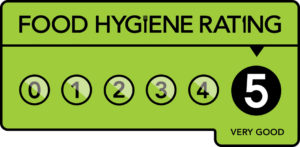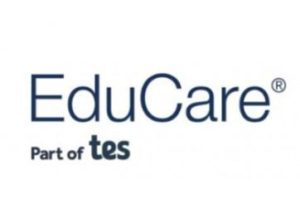-
Information Sharing & EYFS at Bluebirds Day Nursery
The statutory requirements
It is a requirement of the Early Years Foundation Stage (EYFS) in England to share information with parents and to keep them updated with their child’s daily routines and activities and experiences.
Ways we share information with our parents:
- Doorstep Chat
- Blossom Parent App
- WhatsApp & Text messages
- Telephone
- Website
- Information sheet on parent noticeboard
- Parent Evening meeting – formative report and two-year-old check report
- Ad-hoc meeting
Please free feel to use any of the above ways to interact with us.
EYFS – EARLY YEARS FOUNDATION STAGE
EYFS is the statutory framework that school and early years providers must meet for the learning, development and care of children from birth to 5. Below is a summary of the seven areas of learning and how we use it in our Curriculum.
EYFS areas of learning
Communication and language (C&L)
Children are provided with a range of opportunities through the day to interact with adults and friends, to develop their language skills; they engage with adults who model good listening and their understanding develops as they play. For example, we sit with each child and play their games, taking an interest in what they are doing and chatting to them. The setting provides language rich environment and language focused play for the children. We use Makaton and words from other languages to support children learning.
Personal, social and emotional development (PSED)
Children play with other children in the setting, both indoors and outdoors and learn about friendships. They are encouraged to express themselves and their feelings and behaving appropriately so they will cope in a busy classroom when they start mainstream school. For example, we talk about how we are feeling and do lots of activities to support children’s emotional wellbeing. We use golden rules to teach “British Values” and also teach self-registration to support the children and to learn empathy.
Physical development (PD)
Children enjoy going into the garden where they run around, learn how to ride a bike, for example, and participate in other gross motor challenges. We also do activities to support fine motor skills; independence is encouraged so they can take care of themselves when they start school. We encourage parents to duplicate and / or complement these skills at home. We also provide parents with activities that we do at the nursery so they can share the fun activities with their children at home. To develop fine motor skills we do dexterity activities e.g using tweezers, scissors, screw drivers, single handed tools to build strength for pencil control, and for gross motor skills, for example, we plan obstacle courses, yoga, balance beam, climbing wall on the slide, mark making etc to promote children’s movement and spatial awareness and we suggest parents let their children set up similar courses at home by taking them to park, ride scooters, climb trees, and push trollers while out shopping at the grocery’s stores.
Literacy
We put a lot of focus on books in our nursery. Children can look through books independently, with friends or staff. We have book related to the current theme to share new information, teach new vocabulary, help them learn about something new etc. They are also engaged in various mark making activities which provide the children with the strength and coordination for later writing – mark making is everywhere, inside and in the garden. Staff regularly read to the children in the nursery to promote the love of reading and they use puppets and small world toys to bring books alive. We also use Phase one aspect of Phonics which includes music, rhyming, blended learning, intonation and literation to support our children’s learning.
Mathematics
Children learn maths through daily planned and independent / small group play and adult interactions; they explore all aspects of maths through our daily routines and quality resources, books and regular themed activities. For example, we count steps when going upstairs, we grow plants, measure them and record growth. We talk about time; we spot different shaped roofs and windows on outings, we count steps and subitise by saying what we see and how we see it etc. We also encourage our parents to do so when they are out and about with their children.
Understanding the world (UW)
Children learn about their families, the local community like our local Aldi Store, fire station etc, nature eg animals and sea creatures and our wider world through the activities, experiences and resources we offer them, this is called cultural capital; they have a supervised access to a computer and other technology. For example, we have photo albums in the room with pictures of their family members for each child to help them talk about their home life and family. We use blended learning to explore the world around them through their knowledge and our knowledge.
Expressive arts and design (EAD)
Children are offered daily opportunities to get involved in a variety of craft and creative projects. For example, they explore paint, crayons, glue, collage, music etc. Our roleplay and small world resources support children’s developing imaginations. The children dress up, pretending to be their favourite characters and re-enacting stories from books or TV.
Characteristics of effective learning
This is noting how your child is developing their learning characteristics during their play, because this allows us to better support them in the future. This also helps us to ensure our environments (inside and in the garden), outings, curriculum and resources continue to meet their learning needs.
- Are they MOTIVATED – do they want to join in? Are they keen on doing / learning new things? If a child is not motivated, they are unlikely to want to play and their behaviour will show this. ∙
- Are they ENGAGED – do they concentrate on their play and learning? If a child cannot concentrate, they are more likely to be disruptive or become the ‘lost’ children you see round the edges of the group. ∙
- Are they THINKING – are they critical and creative thinkers? We want children to be motivated and engaged to give them the best opportunity to develop deep thinking skills.
Schemas
Schema is repeated patterns of play. Staff will use the children schema to introduce new activities for them. Parents are encouraged to read through and spot activities their child might like to try at home and link it to a current schema. We also ask parents what their child is doing at home to help us spot schemas by completing the ‘Interest and Event’ form for each child termly.
Reading at Bluebirds, Theme and Activities
Every activity starts with a book to promote the love of reading at our nursery. We focus on a book for the theme and enhanced it with resources such as puppets, games, jigsaws, craft activity ideas etc to bring the story alive. We read the book and then, depending on the children’s interest in the story, we plan activities which will support their understanding of the story.
We visit our local library regularly; invite librarian to visit the nursery and read stories to our children, invite EAL parents to read books in their language to the children and interpret the story etc.
To enhance learning about winter, for example we might set out a basket with winter animals and used them alongside our book ‘Say hello to the winter animals’ by Ian Whybrow; we then moved on to learn about food in winter and grew some vegetables in our garden – we all made ‘silly’ winter vegetable soup.
We also have topics linked to the time of year, seasons or events in the children’s home and family lives and new learning about the world around us.
For example, we might plan activities to cover –
- January – winter changes in the world around us.
- February – Valentine’s Day; Pancake Day; winter weather.
- March – Mothering Sunday, looking for signs of spring; spring gardening etc.
We carefully link our activities to each child’s interests and ‘next steps’ / individual planning which we plan with them.
Continuous Provision at Bluebirds – these are some of the resources that are always available to allow children to continue learning with or without the direct interactions of an adult –
- Mark making – crayons, chalks, sand, corn flour etc
- Gross motor challenges – bike riding, age-appropriate slides, sea-saw etc
- Cars and roadway / trains and train track, boats etc
- Role play – small world animals, dolls and dolls house, kitchen, dressing up.
- Malleable – playdough, shaving foam, gloop, moon sand etc.
- Water & Sand
- Literacy – chalk board, books, mark marking, blended learning, music
- Music area – international wooden musical instruments, percussions, shakers, drums etc
- Planting area
- Outside resources – ‘muddy’ kitchen, slide, riding bikes, large scale construction toys, movement toys.
We also use continuous provision to enhance planned activities and children are allowed to move resources around to support their own learning.
Sharing your outings and adventures
In our nursery, outings are flexible – where we go depends on children’s current interests and wishes.
All outings help children learn about their local area/ community as well as developing other skills and learning depending on where we go/what we do.
We make social story books about our outing to keep the memory fresh in our children’s mind.
Reflection on practice
We do our best to keep parents updated with their children’s activities, experiences, and our daily routines in the setting.
Do we always succeed? It depends on the parents and how well they engage with us, but we feel that we do our best. We share through discussion, using photos and a brief message about what the child is doing / learning on our nursery parent app.
Meetings can be arranged with us via phone call or through messages (Text or WhatsApp) and our parents app. We meet with parent face to face or through Zoom meetings.
- Home
- About Us
- -- Facilities
- -- Nursery Information
- -- Nursery Opening Times & Sessions
- -- Gallery
- -- Healthy Eating
- Parents Resources
- -- BLOCK 1
- ---- Terms and Conditions
- ---- Privacy Notice - GDPR
- ---- Policies & Procedures
- -- BLOCK 2
- ---- Testimonials
- ---- Newsletter
- ---- OFSTED Reports
- -- BLOCK 3
- ---- Parent Guides
- ---- Local Offer
- Joining Us
- Vacancies
- Contact Us







